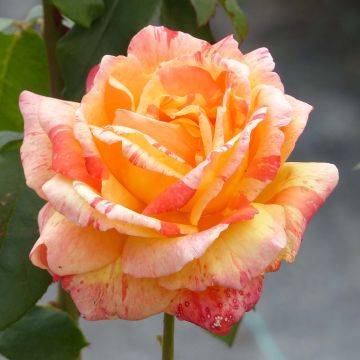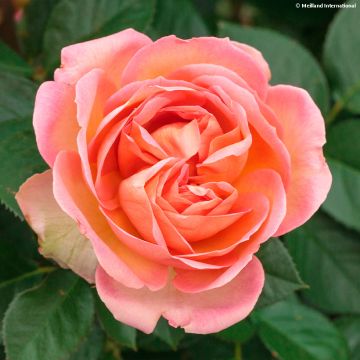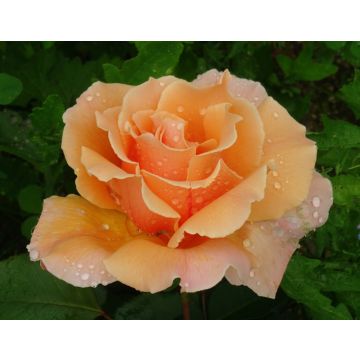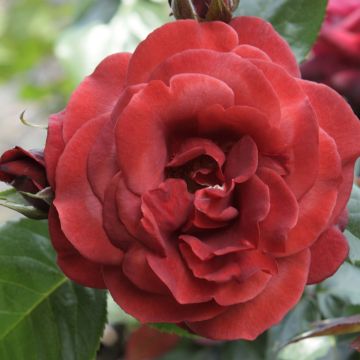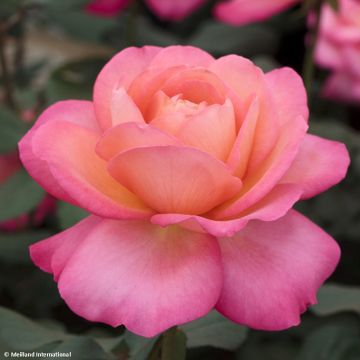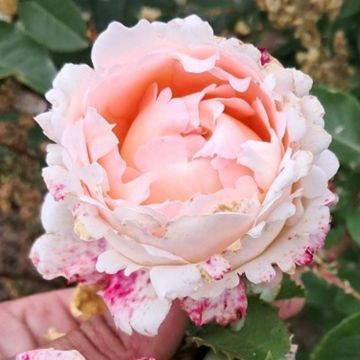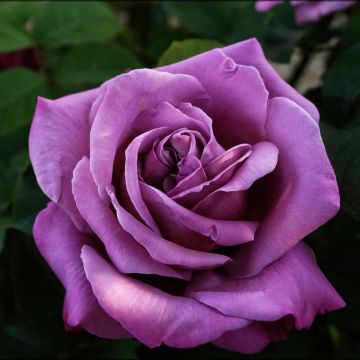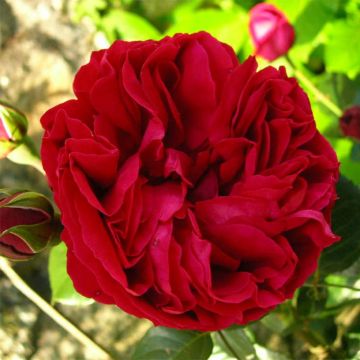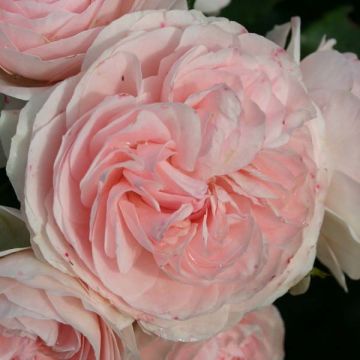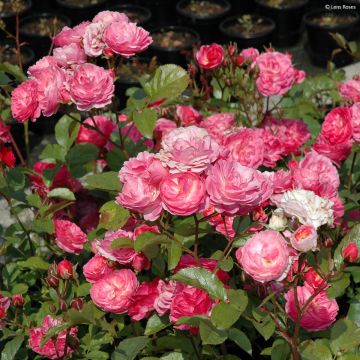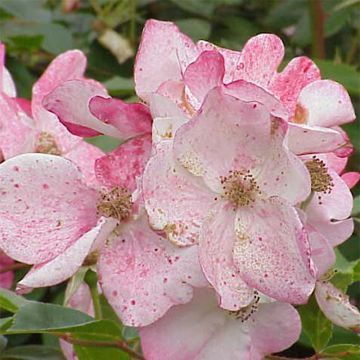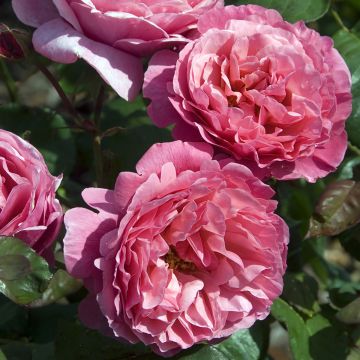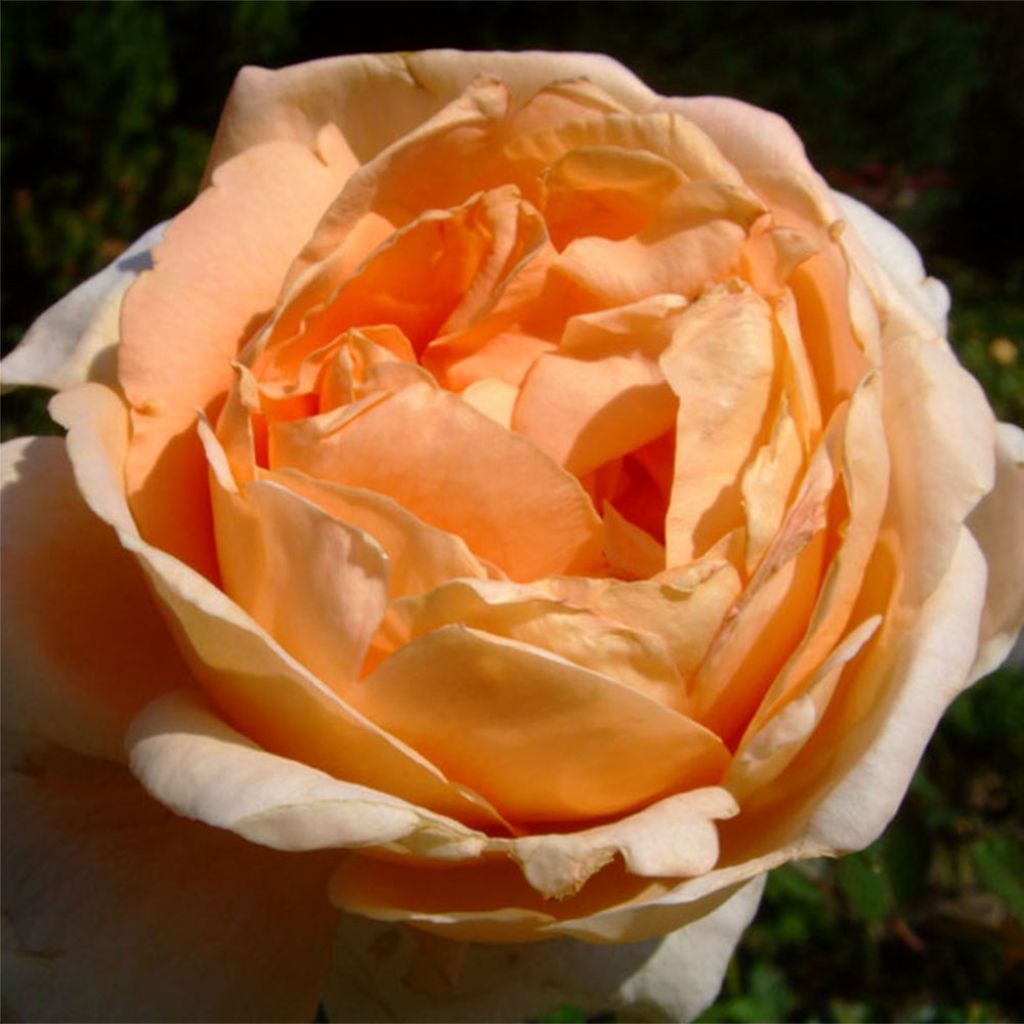

Rosa Abbaye de Cluny - Modern Shrub Rose
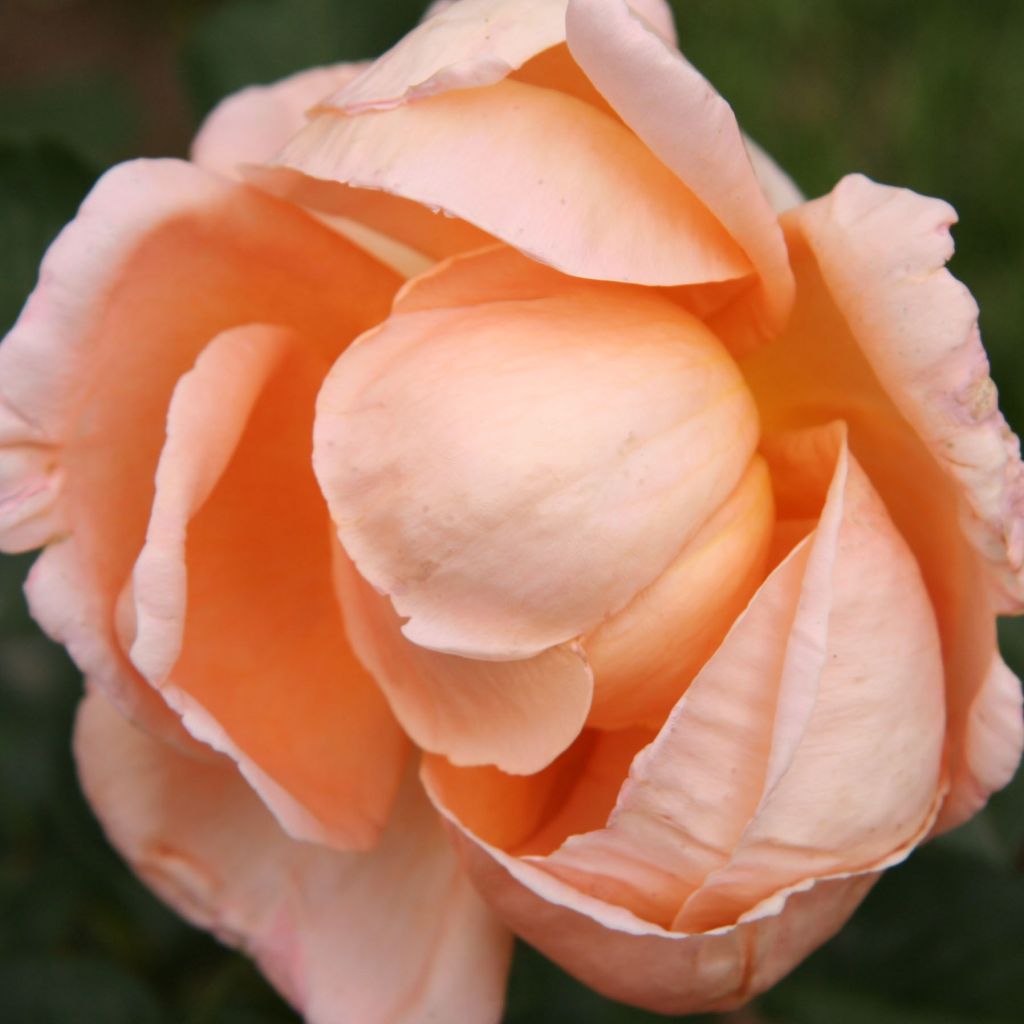

Rosa Abbaye de Cluny - Modern Shrub Rose
Rosa Abbaye de Cluny - Modern Shrub Rose
Rosa Abbaye de Cluny® 'Meibrinpay'
Rose
This item cannot be shipped to the selected country
Delivery charge from €5.90
Delivery charge from €5.90
Delivery charge from €5.90
Delivery to Corse prohibited
More information
Schedule delivery date,
and select date in basket
This plant carries a 24 months recovery warranty
More information
We guarantee the quality of our plants for a full growing cycle, and will replace at our expense any plant that fails to recover under normal climatic and planting conditions.
From €5.90 for pickup delivery and €6.90 for home delivery
Express home delivery from €8.90.
From €5.90 for pickup delivery and €6.90 for home delivery
Express home delivery from €8.90.
From €5.90 for pickup delivery and €6.90 for home delivery
Express home delivery from €8.90.
Delivery to Corse prohibited: UE law prohibits the import of this plant from mainland France to Corse as part of the fight against Xylella fastidiosa. Please accept our sincere apologies.
More information

Does this plant fit my garden?
Set up your Plantfit profile →
Description
The Abbaye de Cluny Rose, prized with a Gold Medal in Monza 1993 and voted the most beautiful rose in France in Lyon in 1994, is a vigorous and healthy rose, with a perpetual flowering habit, which bears very beautiful roses, in the form of slightly double cups, adorned with a soft and original colour: their pearly petals of coppery orange and salmon, delicately tinged with red, are tightly packed in globose buds that open like old roses, while fading. Its bright green and satin foliage is elegant. Stunning in flower beds, it also produces very beautiful roses for bouquets.
While modern roses are often criticised for their stiffness and weak disease resistance, the Abbaye de Cluny 'Meibrinpay' variety possesses the vigour and delicacy of old roses. This rose, belonging to modern hybrid tea roses, forms a small bushy shrub with a rather upright habit, and its branches are flexible. It will reach about 1m (3ft) in height and 70cm (28in) in width. From June until the first frost you will see, in successive waves sometimes, very beautiful roses with 25 to 30 petals, 10 to 11cm (4in) wide, solitary and borne on long stems, open. They form a gradient ranging from salmon orange to apricot and then to cream-white, from the centre of the flower to the edge. The heart of the flower, shaded in red, is filled with numerous golden stamens. The fragrance is very discreet. Its abundant foliage, divided into large leaflets of bright green and satin, is generally very healthy, even though it is sometimes prone to black spot disease in humid climates.
This hybrid rose Abbaye de Cluny, with its romantic appearance and modest size, will surely find its place in the garden. It adapts to all soils that are not too dry and all climates, which allows it to be welcomed without reservation from the north to the south of our region, even at altitude. Planted in masses, it will enhance shrub beds. It will integrate perfectly into a landscape hedge, where it will complement the foliage of dogwoods and viburnums. It associates perfectly with pretty and easy-to-grow perennials such as daylilies, blue-flowering perennial geraniums, campanulas, and why not purple heucheras that will fill its sometimes bare base after a few years.
Obtained by Meilland - 1993.
Report an error about the product description
Rosa Abbaye de Cluny - Modern Shrub Rose in pictures
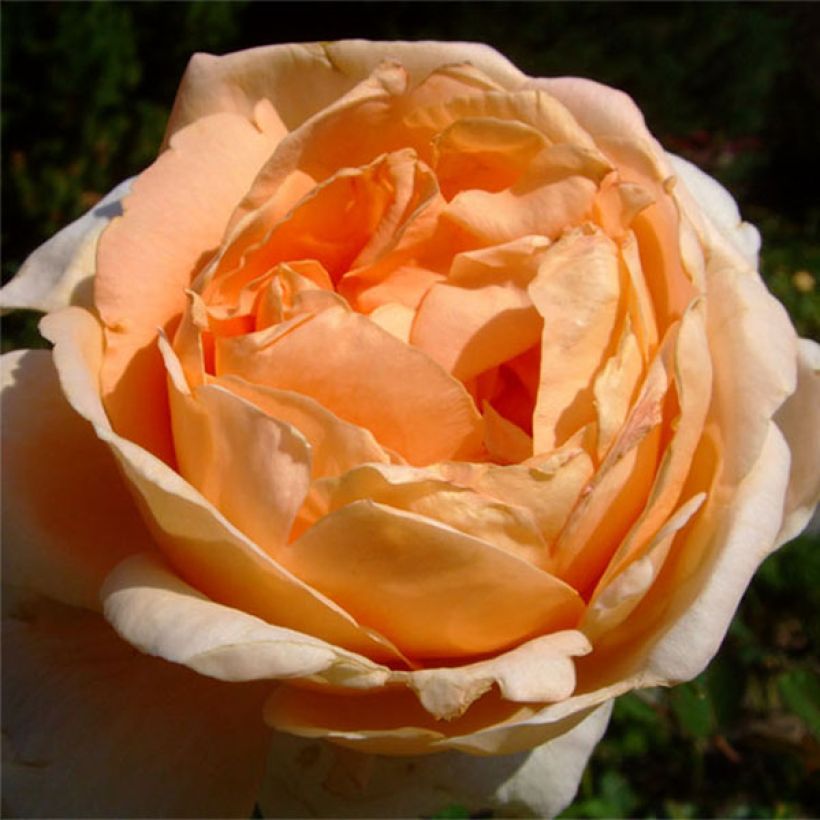

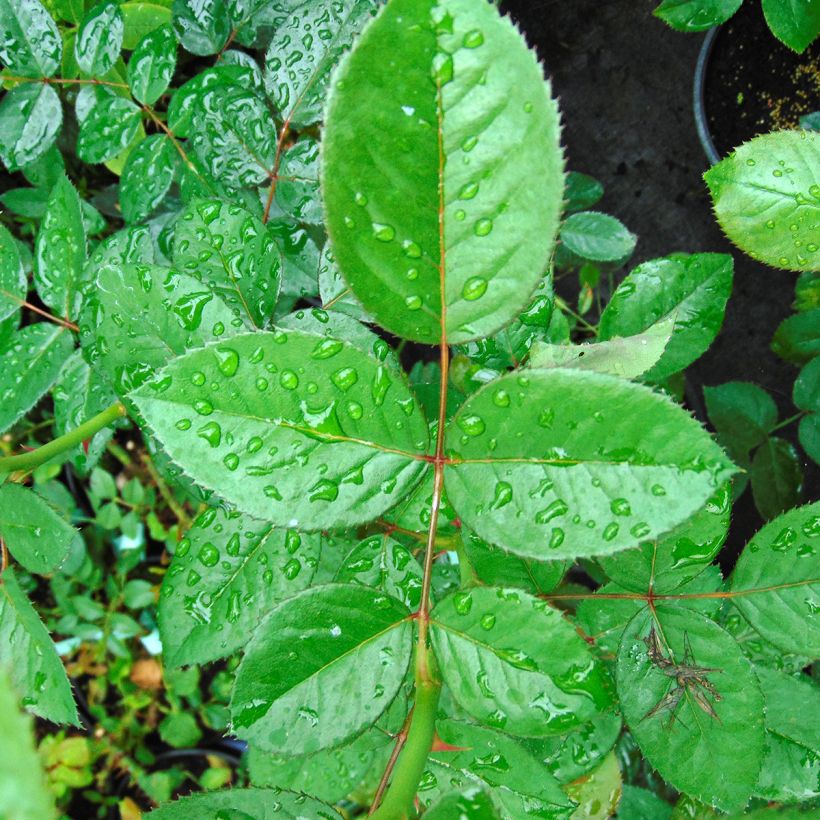

Plant habit
Flowering
Foliage
Botanical data
Rosa
Abbaye de Cluny® 'Meibrinpay'
Rosaceae
Rose
Cultivar or hybrid
Rosa canina Laxa (4L/5L pot, Wrapped bare root)
Other Large-flower tea Roses
Planting and care
Plant this rose from November to March, in ordinary, well-loosened and free-draining soil. Roses prefer clayey soils, rather heavy than light. In soil that is too sandy, too compact or too dry in summer, it is preferable to bury compost, decomposed manure or leaf-mould at the bottom of the planting hole. However, this rose dreads waterlogged soils in winter. Place it in a sunny position, at most in partial shade. Roses are greedy plants, a specific rose fertiliser application will be beneficial when the foliage emerges, then regularly during the entire flowering period.
Planting period
Intended location
Care
-
, onOrder confirmed
Reply from on Promesse de fleurs
Roses by producer
Haven't found what you were looking for?
Hardiness is the lowest winter temperature a plant can endure without suffering serious damage or even dying. However, hardiness is affected by location (a sheltered area, such as a patio), protection (winter cover) and soil type (hardiness is improved by well-drained soil).

Photo Sharing Terms & Conditions
In order to encourage gardeners to interact and share their experiences, Promesse de fleurs offers various media enabling content to be uploaded onto its Site - in particular via the ‘Photo sharing’ module.
The User agrees to refrain from:
- Posting any content that is illegal, prejudicial, insulting, racist, inciteful to hatred, revisionist, contrary to public decency, that infringes on privacy or on the privacy rights of third parties, in particular the publicity rights of persons and goods, intellectual property rights, or the right to privacy.
- Submitting content on behalf of a third party;
- Impersonate the identity of a third party and/or publish any personal information about a third party;
In general, the User undertakes to refrain from any unethical behaviour.
All Content (in particular text, comments, files, images, photos, videos, creative works, etc.), which may be subject to property or intellectual property rights, image or other private rights, shall remain the property of the User, subject to the limited rights granted by the terms of the licence granted by Promesse de fleurs as stated below. Users are at liberty to publish or not to publish such Content on the Site, notably via the ‘Photo Sharing’ facility, and accept that this Content shall be made public and freely accessible, notably on the Internet.
Users further acknowledge, undertake to have ,and guarantee that they hold all necessary rights and permissions to publish such material on the Site, in particular with regard to the legislation in force pertaining to any privacy, property, intellectual property, image, or contractual rights, or rights of any other nature. By publishing such Content on the Site, Users acknowledge accepting full liability as publishers of the Content within the meaning of the law, and grant Promesse de fleurs, free of charge, an inclusive, worldwide licence for the said Content for the entire duration of its publication, including all reproduction, representation, up/downloading, displaying, performing, transmission, and storage rights.
Users also grant permission for their name to be linked to the Content and accept that this link may not always be made available.
By engaging in posting material, Users consent to their Content becoming automatically accessible on the Internet, in particular on other sites and/or blogs and/or web pages of the Promesse de fleurs site, including in particular social pages and the Promesse de fleurs catalogue.
Users may secure the removal of entrusted content free of charge by issuing a simple request via our contact form.
The flowering period indicated on our website applies to countries and regions located in USDA zone 8 (France, the United Kingdom, Ireland, the Netherlands, etc.)
It will vary according to where you live:
- In zones 9 to 10 (Italy, Spain, Greece, etc.), flowering will occur about 2 to 4 weeks earlier.
- In zones 6 to 7 (Germany, Poland, Slovenia, and lower mountainous regions), flowering will be delayed by 2 to 3 weeks.
- In zone 5 (Central Europe, Scandinavia), blooming will be delayed by 3 to 5 weeks.
In temperate climates, pruning of spring-flowering shrubs (forsythia, spireas, etc.) should be done just after flowering.
Pruning of summer-flowering shrubs (Indian Lilac, Perovskia, etc.) can be done in winter or spring.
In cold regions as well as with frost-sensitive plants, avoid pruning too early when severe frosts may still occur.
The planting period indicated on our website applies to countries and regions located in USDA zone 8 (France, United Kingdom, Ireland, Netherlands).
It will vary according to where you live:
- In Mediterranean zones (Marseille, Madrid, Milan, etc.), autumn and winter are the best planting periods.
- In continental zones (Strasbourg, Munich, Vienna, etc.), delay planting by 2 to 3 weeks in spring and bring it forward by 2 to 4 weeks in autumn.
- In mountainous regions (the Alps, Pyrenees, Carpathians, etc.), it is best to plant in late spring (May-June) or late summer (August-September).
The harvesting period indicated on our website applies to countries and regions in USDA zone 8 (France, England, Ireland, the Netherlands).
In colder areas (Scandinavia, Poland, Austria...) fruit and vegetable harvests are likely to be delayed by 3-4 weeks.
In warmer areas (Italy, Spain, Greece, etc.), harvesting will probably take place earlier, depending on weather conditions.
The sowing periods indicated on our website apply to countries and regions within USDA Zone 8 (France, UK, Ireland, Netherlands).
In colder areas (Scandinavia, Poland, Austria...), delay any outdoor sowing by 3-4 weeks, or sow under glass.
In warmer climes (Italy, Spain, Greece, etc.), bring outdoor sowing forward by a few weeks.

































